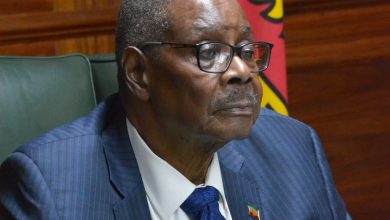Parties react to Ipor survey, outline plans
As candidates turn to issues troubling voters most af ter closure of presentation of nomination papers today, The Nation’s interviews with some presidential contenders and party spokespersons show a deficit of fresh ideas to solve the country’s most pressing challenges.
The Nation asked the parties to outline their plans for improving the economy, creating jobs and fighting corruption—three of the areas that the Institute of Public Opinion and Research’s (Ipor) survey released on Monday said Malawians want to see urgent improvement.

The survey found that citizens rated the Tonse Alliance government positively on health services (58 percent), water and sanitation (56 percent) and education (51 percent).
However, 76 percent of the respondents felt the national economy has worsened over the past year.
In separate interviews on Tuesday, Malawi Congress Party (MCP), Democratic Progressive Party (DPP), UTM Party and People’s Party (PP) were all at pains to articulate what they would do differently to turnaround the current situation.
In a written response, UTM Party president Dalitso Kabambe, an economist and former Reserve Bank of Malawi governor, said the Ipor survey findings confirmed that economic decline, unemployment and corruption were impacting Malawians.
He said if voted into power in the September 16 General Election, his administration will transform the country’s economy through productivity, industrialisation and macroeconomic discipline. He added that they would allocate K200 billion for skills training, youth cooperatives and start-up funding to create more jobs.
Said Kabambe: “We will stabilise the economy by restoring fiscal discipline, reducing government wastage, and rebuilding trust with international partners, especially the IMF [International Monetary Fund] and World Bank, to unlock concessional financing and foreign direct investment.
“We will aggressively invest in key productive sectors
especially agriculture, agro-processing, industrialisation, mining, and tourism.”
On her part, PP leader Joyce Banda, the country’s former president who governed between 2012 and 2014, said her administration will first implement a quick fix initiative focusing on the short-term solutions to stabilise the country’s economy before implementing long-term strategies in education, agriculture, mining and tourism, among others.
She said in her first year she will introduce cash for work initiatives to enable Malawians have food and help reduce inflation.
“We will also engage our partners to look at programmes that we have in mind, how much it will cost and what we need to do in order to mobilise that money including their participation,” said Banda.
On his part, DPP and former president Peter Muthar ika’s spokesperson Shadric Namalomba said it was heartbreaking to see Malawi’s economy continue worsening.
He said if voted into power, DPP administration will restore the country’s economy, end corruption and create jobs with its strong leadership and stable policies.
However, Namalomba could not indicate the exact strategies to be put in place to achieve their goals.
“We have done it before. This time, we are even more focused. We will not talk too much, but we will act fast. What matters is the results, not noise.” he said.
On corruption, he said DPP will deal with it quietly but firmly while strengthening oversight, removing loopholes and leading by example by.
MCP secretary general Richard Chimwendo Banda attributed the country’s economic situation to disasters such as Cyclone Freddy, El Nino-induced dry spells and Covid-19 pandemic.
However, he said President Lazarus Chakwera’s administration has performed well in the fight against corruption and government has already started implementing some initiatives to turnaround the economy.
Said Chimwendo: “Every Malawian knows why we are in this situation. The first two years of our government we faced a number of challenges that affected us to take off as we all thought.”
UDF president Atupele Muluzi and spokesperson Dyson Jangiya were not available for comment.
But in its manifesto, UDF outlined a number of strategies that will boost the country’s economy, fight corruption and create more jobs.
UDF’s strategies include the Business First Plan which will focus on a future based investment, trade, innovation, domestic wealth generation, and private sector-led growth.





